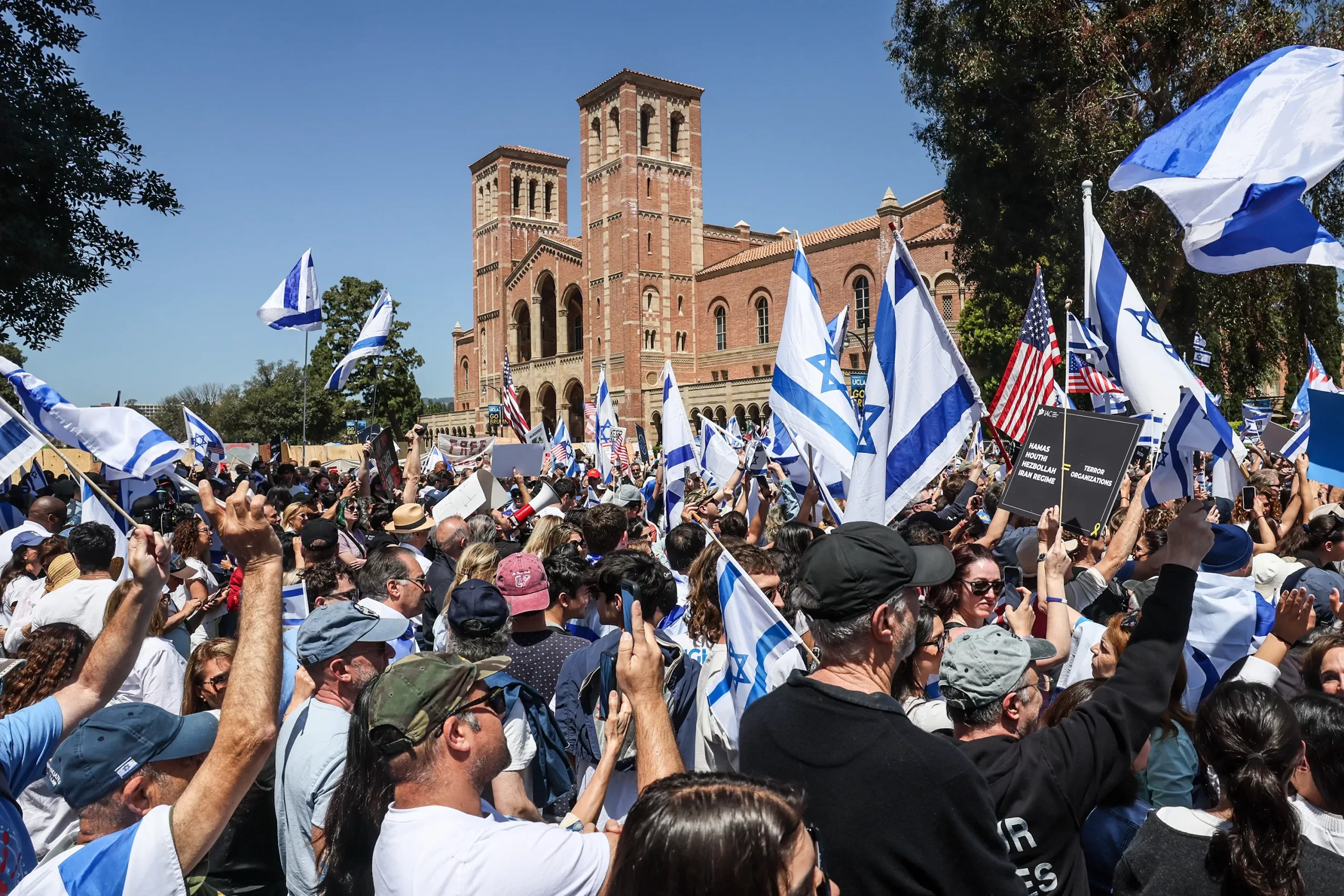People who support Palestine and those who support Israel fought at the University of California, Los Angeles (UCLA) on Sunday. They were part of protests happening at colleges all over the country.
At UCLA, clashes started between some members of the two groups before a protest by the Israeli American Council. Many people gathered on the campus, showing support for both sides.
Some counterprotesters tried to break through barriers set up by the university to keep the groups apart. Later, pro-Palestine protesters also got through, leading to small fights.
Mary Osako, who speaks for UCLA, said they were sad about the violence. UCLA is known for peaceful protests, and they don’t want violence.

Despite the fights, most of the protests were peaceful. No one got arrested because of the fights.
The protests at UCLA are part of a bigger movement where college students are taking over campus spaces. They want to show they’re not happy with how the Biden administration is handling the conflict between Israel and Hamas. They also want their colleges to stop supporting Israel.
Across the country, hundreds of students have been arrested for protesting. Even though these protests are getting attention, they haven’t changed what the Biden administration thinks.
They mostly see them as anti-Jewish. Some Republican leaders have asked Biden to use the National Guard to stop the protests, but he hasn’t agreed.
